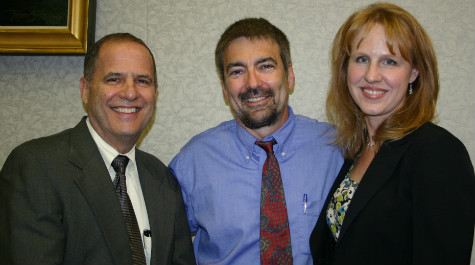Panel on Death Penalty Issues
Professor Sundby’s presentation focused on what he termed the “moral wobble” of death penalty cases. Traditional criminal cases involve “questions of historical fact: was the defendant there, did he commit the crime, is there sufficient evidence of the necessary state of mind, etc.” Death penalty considerations, however, by necessity require some element of “moral and emotional decision-making: is this defendant the ‘worst of the worst’ and therefore deserving of the death penalty?” This heavily subjective moral and emotional analysis, he argued, means that the capital punishment system cannot ensure moral consistency and is therefore resistant to the rule of law.

Professor Lain discussed “the majoritarian nature of the Supreme Court's Eighth Amendment evolving standards of decency doctrine” and offered an analysis of the Court’s contemporary death penalty cases. She examined three of the most prominent evolving standards decisions under the “cruel and unusual punishment” clause, along with the decisions they implicitly or explicitly overruled. She concluded, “Doctrine does not matter one whit in the Supreme Court's evolving standards cases, but where majoritarian doctrine does not constrain the Court's decision-making, other majoritarian forces do.”
Finally, Professor Marcus offered an international perspective on the death penalty. He suggested that although the conventional wisdom is that the United States is an outlier in the international community, the U.S. is actually well within the mainstream of nations that have the death penalty. The U.S. executes far fewer people for far fewer offenses than most countries that maintain capital punishment. And while many in the international community have expressed a clear desire to see the death penalty abolished, it is not universal among all the nations of the world and the U.S. cannot be considered at the forefront of capital punishment.
The presentations were followed by a question and answer period.
Professor Sundby holds a J.D. from Cornell University Law School, where he graduated Order of the Coif and was Editor of the Cornell Law Review, and a B.A. from Vanderbilt University, where he became a member of Phi Beta Kappa. Sundby's scholarship focuses on criminal and constitutional law issues. Recently, much of his research has been conducted as part of the Capital Jury Project, a study funded by the National Science Foundation that is designed to understand how juries decide whether or not to impose the death penalty.
Professor Lain holds a J.D. from the University of Virginia School of Law, where she graduated Order of the Coif and was a Notes Editor for the Virginia Law Review, and a B.A. from the College of William & Mary, where she was Phi Beta Kappa and graduated summa cum laude. Lain teaches a variety of courses emanating from her experience as a former prosecutor, including criminal procedure, evidence, children and the law, and a domestic violence seminar. Her scholarship, which challenges conventional wisdom about the role and impact of the Supreme Court in the criminal procedure and death penalty areas, has been reviewed in glowing terms by some of the nation’s brightest and most respected legal scholars.
Professor Marcus has a J.D. and an A.B. from the University of California-Los Angeles. He graduated Order of the Coif from the law school and was Articles Editor of the UCLA Law Review. He has written numerous books and articles on criminal law and procedure and has lent his expertise on a pro bono basis in many cases during his career. He directs the Law and Literature Program at the Virginia Peninsula Regional jail in which law students and inmates meet to read and discuss works of fiction that have law and justice as their themes.



